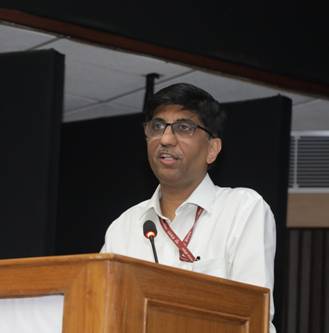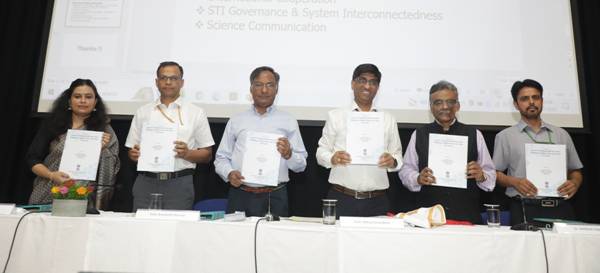The Department of Science and Technology (DST) organized a national brainstorming session on “Transforming Science, Technology, and Innovation Ecosystems of India” at the Indian National Science Academy (INSA), today in New Delhi.
The day-long discussions were hosted by the Indian National Science Academy (INSA) and focused on critical areas like research and innovation; equity and inclusion; technology development, translation, innovation, and entrepreneurship; international cooperation; and science, technology, and innovation governance.

Prof. Abhay Karandikar, Secretary, Department of Science and Technology (DST)
Prof. Abhay Karandikar, Secretary, Department of Science and Technology (DST), said in his inaugural address that DST was the pioneer in developing science and technology policies to facilitate R&D over the years. He said, “We set up several centers of policy research, and we have taken the lead in areas like formulating science and technology indicators, benchmarking those indicators against global practices, and doing evidence-based analysis about the entire scientific and technological ecosystem in the country.
Prof. Karandikar emphasized that DST could take the lead in developing policy interventions in different sectors in harmony with all line ministries for ease of doing research and facilitating deep tech startups. “At present, as the S&T ecosystem transforms rapidly, we need to design agile and adaptive policies that can sync with the changes,” he added.
“We need a long-term policy for creating a very robust and strong ecosystem of basic science research in the country, which can lead to more discoveries and inventions from our country. I hope that all of you who have been working in their respective areas will be able to deliberate and come up with some recommendations that we can take forward.”

Prof. Ashutosh Sharma, President, INSA said “Science, technology, and innovation (STI) policy formation was a mammoth exercise, involving the consultation of a wide range of around 50,000 stakeholders from different sectors and balancing conflicting demands.”
He also highlighted that science can work only with right kind of policy highlighting how the new open National Geospatial Policy could reach benefits of Geospatial information to Indians and helped make resources like rural land economically important by defining ownership.
Dr. Akhilesh Gupta, Senior Adviser, DST, gave an outline of the DST’s policy research initiatives and chalked out the entire exercise of formulation of the Science, Technology, and Innovation Policy (STIP) 2020.
The expected outcomes from the sessions are to develop a comprehensive roadmap for national science policy development, identify specific policy recommendations to address critical challenges within each focus area., foster collaboration and knowledge exchange between policymakers, researchers, and industry stakeholders, and establish a platform for ongoing dialogue and collaborative policy development efforts.
 Matribhumi Samachar English
Matribhumi Samachar English


